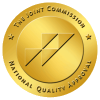According to the National Center for Complementary and Alternative Medicine, a division of the U.S. Department of Health and Human Services, alternative medicine is an approach to one’s physical care that is used to replace the Western, pharmaceutical medicines that many American turn to as a first choice for their care. If an individual has developed an addiction to these mainstream, prescription medications, alternatives may be needed to maintain health.
Meditation and Yoga Can Control Pain
Meditation has been used for thousands of years, originating in Eastern countries. It is a practice of relaxing one’s mind through the use of focused attention. You can choose to meditate using mantras, or a repetitive set of words, sometimes in a foreign language. You can meditate using a focus object, such as a candle flame or a small river stone held in the hand. One common idea of meditation might be the figure of a person sitting in the lotus position, a seemingly impossible posture for some, while being perfectly still. This is a misconception, as some individuals meditate while lying comfortably in a reclined position, or even taking a walk surrounded by the elements of nature. However you decide to engage in meditation, studies have shown that Americans use meditation for many conditions, including the relief of stress, depression, anxiety or overwhelming emotions due to chronic illness, such as drug abuse and addiction.
Yoga is a physical form of meditation that does often involve specific postures, of which the lotus position is only one. In fact, yoga itself is an all-encompassing term that applies to a practice of mind-body-spirit alternative medicine. There are many types of yoga available, including:
- Kundalini
- Anusara
- Ashtanga
- Ananda
- Bhakti
For those who feel that sitting silently and holding poses for periods of time seems less than enchanting or exciting, kirtan, a form of Kundalini yoga, may be a fun alternative. Kirtan involves the use of sound in the meditation process — specifically, Kirtan is all about singing. It is so effective on the brain, in fact, that the Alzheimer’s Research and Prevention Foundation has indicated the use of certain types of kirtan for the improvement of memory issues in patients affected by this debilitating disease.
Effects of Music on the Human Brain
The brain is a highly complicated organism, controlling our bodies, from the number of breaths we take in a minute to the number of times our heart beats in an hour. Chemical messengers in the brain are responsible for our feelings of pleasure as well. The chemical, dopamine, is also the chemical that is affected most when one engages in drug abuse. Studies have shown, according to an article in Psychology Today, that music also affects the levels of dopamine in our brains.
When we look forward to listening to music — any kind of music, but also the music involved in kirtan yoga — and then follow that anticipation with actual participation in listening to music, our brains release natural dopamine that enhances the feelings of pleasure in our bodies. Natural activities like listening to music, exercising or participating in another hobby can bring about relaxation and enjoyment – feelings that people often associate with regular prescription drug use.
Get Help for Your Son Today
While your son receives treatment for his overcome dependence on prescription and other drugs. The trained and experienced staff at Muir Wood will provide your son with the skills and tools he needs to overcome addiction and continue his life in a promising and healthy lifestyle. In addition to traditional evidence-based treatments, we utilize various complementary therapies to help your son embrace a new, healthy outlook on life. Contact us now for more information on our offerings.


